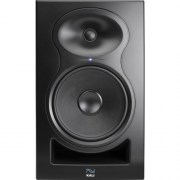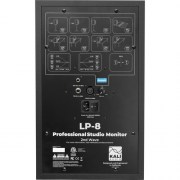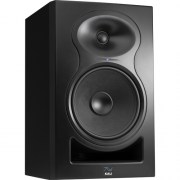The Kali LP-8 V2 put the ability to achieve excellent mixes within anyone's grasp. This monitor helps content creators and professional mixers—and if you purchase two—you can deliver exceptional mixes using the advanced waveguide for 3D imaging. The monitor offers clear sound reproduction throughout the frequency range, a low-noise performance, and a sensitivity that reaches levels necessary for creating punchy and fully realized mixes.
This is the second generation of the Lone Pine series, delivering lower-noise, higher sensitivity, a smoother high-end, and a more consistently accurate low-end than the original monitor. Furthermore, the Boundary EQ settings have all been updated based on user feedback, delivering tuning options more tailored for real-world scenarios.
The LP-8 accomplishes this by ensuring that the speaker's reflected sound matches its direct sound. Every time you hear a loudspeaker, you're hearing both the direct sound from the speaker, and reflections from the speaker's signal bouncing off of objects in the room. When those reflections are congruent with the direct sound from the speaker, listeners perceive a better sound overall, and are able to make out very subtle details like where microphones are placed in a room. When done very well, the stereo image will sound three-dimensional.
All of this should give you a high degree of confidence in your mix. It allows you to mix faster and produce better mixes overall.
The port tube on the LP-8 was designed to ensure that all of the air leaves the port tube at the same velocity. This helps add to the low end response of the speaker, while keeping the bass clean, tight, and devoid of extra noise.
There are EQ settings for:
- Free Space
- Speakers on stands, against a wall
- Speakers on a desk, away from a wall
- Speakers on a desk, against a wall
- Speakers on a console meter bridge
- Speakers on a studio desk
The tuning has been refined for smoother HF response, and the boundary EQs have been updated to reflect common real-world use cases. Physical improvements include lighter transducer cones for better transient response and upgraded cabinet construction for greater reliability.




